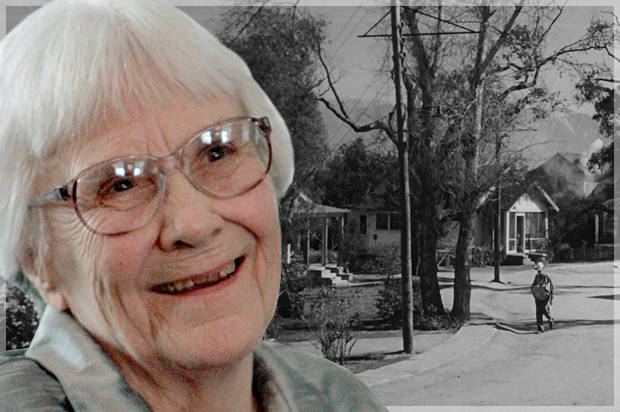It is that rare time of year, and the last ever, when The Good Wife and Mad Men are on the air at the same time on the same night in tandem in the US. To me, they are the same show, so this is a lovely early spring kismet. Both tell of the inexplicable, inevitable rise of a career genius with an unruly personal life. Don Draper sold furs before he became the biggest thing on Madison Avenue; Alicia Florrick was a housewife for 13 years before her husband went to jail and she became the biggest thing in a Chicago courtroom. You underestimate people at your peril.
Of course, everyone knows that Don Draper is a genius and that Mad Men is the best series on television ever. It has won Emmys and Golden Globes and all those other awards they give for costumes and set design and lighting and tilting the camera just so. Everyone agrees that Mad Men is astute with gesture, it is nuance galore. Watching Don Draper down fingers of scotch and somehow maintain his dignity, is a lesson in menschkeit. We love Don Draper and everyone else on the show, both for and against him. It is complete. You judge a drama by the way it treats its minor characters. Mad Men is good on plot and on subplot. We understand Don Draper; we understand his veins and neurons.
But The Good Wife is even better. It’s about a second act that is first rate. Alicia Florrick was once a political wife in the suburbs who had a daily glass of wine at 3pm while her philandering husband corrupted his way into a jail sentence. After trotting Peter (a star turn by Chris Noth) through his mea culpas, Alicia does what she must and gets an entry-level position at a big-city law firm to support her two kids. She moves into Chicago, into a chic apartment. She becomes a fabulous litigator. It turns out she was ambitious after all. Who knew?
 Rare female character … Margulies as Alicia Florrick. Photograph: CBS Photo Archive/CBS via Getty Images
Rare female character … Margulies as Alicia Florrick. Photograph: CBS Photo Archive/CBS via Getty Images
Julianna Margulies has won a Golden Globe and two Emmys for her elegant performance, and the show picked up a Bafta nomination last week. Critics at the Atlantic, the New Yorker and this newspaper have all said that The Good Wife is the best thing to watch, but that is not the conventional wisdom. There is just something about old-fashioned commercial enterprises that makes us get all snobby. Which is silly because The Good Wife, just like Mad Men, shows adults working out complicated relationships, it shows grownup emotions and difficult situations and how they are resolved by smart people. It is great TV about the possibilities for women.
As a network TV show, it is meant to appeal to everyone, including people who don’t mind ads but do mind boredom. It can’t work out a weird dream sequence for five dull episodes and hope no one gives up before there’s a car chase and a shoot-out in the sixth. I appreciate HBO dramas as much as the next neurasthenic, but sooner or later I long for plot. When entertainment is good, it’s like being there. When it’s good, I care. And viewers are very concerned about Alicia Florrick. I am.
Related: The Good Wife: an essential crib sheet for new and returning viewers
From the first episode, when Alicia was a first-year associate making her way at Lockhart-Gardner, I was rooting for her. I root for her when she is wrong and awful, which is all the time. Alicia is difficult and demanding and unfair – with herself and with everyone else – because she would rather be right than nice. The Good Wife invents a rare female character: Alicia is not interested in good intentions because they have nothing to do with the correct result, in fact they are the enemy of it. Yes, TV has had tons of bitches and divas, but Alicia isn’t a caricature – she has quickly gone from scorned housewife to associate to partner to state attorney; she is the smartest one in the room. Turns out, that is fun to watch.
The Good Wife – like Mad Men – is smart and fun because it is an office show about people defined by their jobs. I know that’s supposed to be a bad thing, that we – especially women – are meant to be more expansive, but you know what’s worse? Female characters defined solely by their personal lives. In real life, happy people have work they love and are good at. There is great satisfaction in accomplishment. Alicia and Don always manage because there is something to prove.
The first of the final episodes of Mad Men was the kind that leaves you scratching your head wondering if anything happened. Don Draper is wondering, is that all there is? Draper has a big talent for a small thing. After you’ve written a bunch of great copy, there is only more of the same. It does not go deeper. Wash-rinse-repeat. I see why this series has to end. We can’t find out that Don Draper is boring.
Alicia Florrick also has a big talent, and she went to law school. It is a great deal harder to win cases as a trial lawyer than it is to write advertising copy, although in either event a great deal of natural talent goes far. In both, it helps to be good with words. Yet somehow no one sees that The Good Wife is the same show as Mad Men. The setup for Alicia makes everyone think her success is all an accident. She was a housewife for more than a decade, and we hold that position in such low esteem that we can’t believe Alicia really is a talented attorney. The Good Wife makes every promotion Alicia gets as somehow about something besides her brilliant legal skills. So what if it is something else? Intelligence is not just one thing – it is an array of traits, including charm. There is not book smart and street smart – that is a myth invented by someone who was neither. Intelligence is comprehensive: smart is smart. Alicia is extraordinarily smart. The Good Wife is about the politics of getting though life.
This article was amended on Tuesday 14 April 2015 to remove duplicate paragraphs.
Source:




